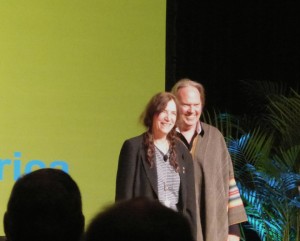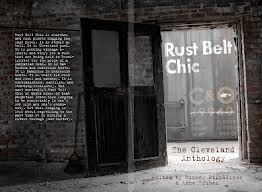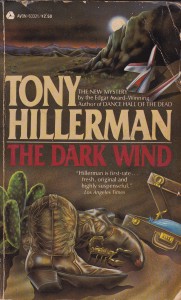Bill Clinton’s DNC speech Wednesday night was such a barn-burner that a few things just whizzed by me as he delivered it. Reflecting on them later, this line jumped out at me.
“Democracy does not have to be a blood sport.”
I’ve been thinking about this since, and today I realized why the phrase has stuck in my mind–they are the same words as the title of James Stewart’s 1997 book, Blood Sport: The President and His Adversaries. Published just as Special Prosecutor Ken Starr was jailing Susan McDougal for 18 months on contempt charges* and targeting the Clintons; it was especially critical of Hillary who declined to cooperate with Stewart on his book. It’s significant to me that Bill chose to utter the phrase in this week’s speech, so many years after the Starr investigation and the impeachment by the House of Representatives, which was followed of course by the acquittal in the Senate trial that followed. I surmise he still views that toxic period as the nadir of the politics of personal destruction, and so knowingly used the phrase for the millions listening, to characterize the way President Obama has been demonized by his foes. The two words created an equivalence between the rampaging campaigns of hate toward each man and disdain for the office.
I should add that it was evidently an ad-libbed phrase, since according to the Atlantic‘s Dashiell Bennett, in his analysis of the prepared text vs. the transcript of what Bill Clinton actually said, the two words were not in the former. It’s also fascinating to juxtapose the prepared text with what was delivered. The word count of the former was 3,136, whereas the latter was 5,895, meaning Bill Clinton extemporized with 2,759 words, or nearly the length again of the prepared text.
The title of Stewart’s book may itself have been inspired by the ripped-up letter found among Vince Foster’s personal effects after his 1993 suicide, in the early days of the Clinton administration,
“I was not meant for the job or the spotlight of public life in Washington. Here ruining people is considered sport.”
I don’t own a copy of Stewart’s book, but when I find a copy I will check to see if Stewart provides the origin of his title anywhere in the book.
At the end on Wednesday night, when President Obama came out and the two men embraced like brothers, I saw a vulnerability in Bill Clinton. As he grasped the binder with the printed text he’d riffed on for 49 minutes, he was still holding on to the words, looking almost unsure of what to do with his hands. It was a very human moment.
* With Carroll & Graf Publishers in 2001, I edited and published Susan McDougal’s book, The Woman Who Wouldn’t Talk: Why I Refused to Testify Against the Clintons and What I Learned in Jail. One of the two times I met President Clinton was at a dinner given in New York City in 2002 by the directors of a documentary, The Hunting of the President: The Ten-Year Campaign to Destroy Bill and Hillary Clinton, based on the book of the same name by Joe Conason and Gene Lyons. Joe was there and Susan was an honored guest. I was pretty stunned when after the meal, Bill Clinton walked into the private dining room of the hotel restaurant. This was after his heart surgery–he’d lost a great deal of weight and he seemed smaller (I had something to compare with, since I’d also met him in 1992, when he was not yet the Democrats’ nominee for president, an encounter I wrote a few days ago on this blog). He put his arm around Susan, whom he’d pardoned before he left office, a noble pardon, I will add. She introduced me to the president, explaining I had been the editor of her book. He looked me in the eye, and said, “Well, you did a good thing, publishing her book. Thank you.”
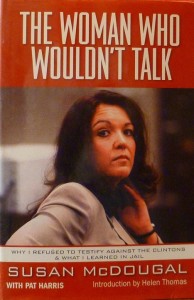
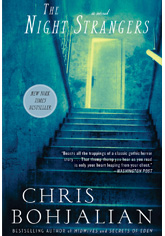 #FridayReads, Sept. 28–The Night Stranger, Chris Bohjalian’s unusual haunted house novel, set in a town much like Franconia, New Hampshire, where I went to college. What does it mean that the number of passengers who died in a crashed airliner–thirty-nine–is the same as the number of bolts in a mysterious basement door? Though about mortality and hidden things, the novel is told with an oddly calm narration that is all the more unsettling for it.
#FridayReads, Sept. 28–The Night Stranger, Chris Bohjalian’s unusual haunted house novel, set in a town much like Franconia, New Hampshire, where I went to college. What does it mean that the number of passengers who died in a crashed airliner–thirty-nine–is the same as the number of bolts in a mysterious basement door? Though about mortality and hidden things, the novel is told with an oddly calm narration that is all the more unsettling for it.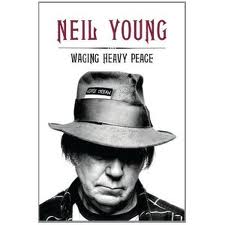 Also, just picking up Waging Heavy Peace, Neil Young’s long look back on nearly seven decades of living and music-making, a rock memoir written in a calm tone of voice and in a pensive and thoughtful frame of mind. With Neil so much a part of my life and musical DNA, I’d really been looking forward to this book, especially after hearing him in conversation with Patti Smith at BEA last June, and now that’s in my hands, I couldn’t be happier to be reading it, with the voice of Neil coming through on every page.
Also, just picking up Waging Heavy Peace, Neil Young’s long look back on nearly seven decades of living and music-making, a rock memoir written in a calm tone of voice and in a pensive and thoughtful frame of mind. With Neil so much a part of my life and musical DNA, I’d really been looking forward to this book, especially after hearing him in conversation with Patti Smith at BEA last June, and now that’s in my hands, I couldn’t be happier to be reading it, with the voice of Neil coming through on every page.